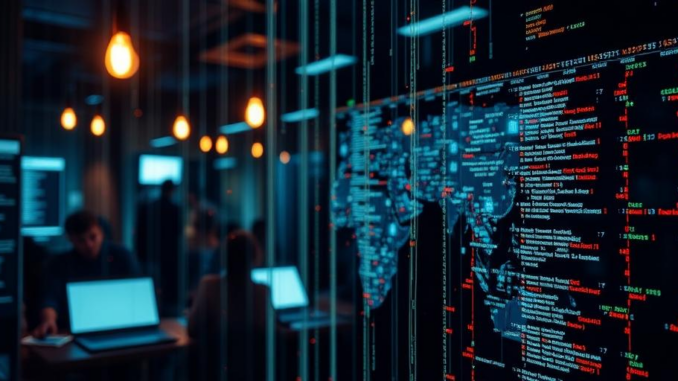
Summary
The Yazoo Valley Electric Power Association suffered a data breach impacting over 20,000 customers following a cyberattack in August 2024. Initially attributed to software problems, the incident was later confirmed as a ransomware attack by the Akira group. While the specific data compromised remains undisclosed by the utility, the incident highlights the growing threat of ransomware to critical infrastructure and the importance of timely disclosure and robust cybersecurity measures.
Explore the data solution with built-in protection against ransomware TrueNAS.
Main Story
Lights Out and Data Exposed: The Yazoo Valley Electric Power Association Breach
In the sweltering heat of August 2024, a cyberattack plunged thousands of residents across six Mississippi counties into darkness, not from a power outage, but from a digital breach that exposed their personal information. The Yazoo Valley Electric Power Association (YVEPA), serving a predominantly rural population, initially attributed the disruption of its payment processing systems to “software problems,” leaving customers in the dark about the true nature of the incident. However, weeks later, the truth emerged – a ransomware attack had crippled their systems, and the personal data of over 20,000 customers had been compromised.
The initial downplaying of the event raises serious questions about transparency and the potential for delayed response. While YVEPA claimed to have discovered “suspicious activity” on August 26th, coinciding with the reported software issues, it wasn’t until October 24th that they completed their internal review, identifying a “limited” amount of compromised personal information. Even more concerning is the fact that the utility took until December 20th to identify and notify the affected individuals, a delay that could have significant consequences for victims of potential identity theft.
While YVEPA has remained tight-lipped about the specific data stolen, the ransomware group Akira claimed responsibility for the attack in November, alleging they had exfiltrated Social Security numbers, internal corporate documents, and financial records. This claim underscores the seriousness of the breach and the potential for long-term damage to the affected individuals. The utility’s offer of one year of identity protection services to the 20,997 victims, while a necessary step, may not be enough to mitigate the risks associated with such sensitive data being exposed.
The YVEPA breach is not an isolated incident. It is part of a larger, disturbing trend of ransomware attacks targeting critical infrastructure, including power grids, healthcare systems, and other essential services. These attacks highlight the vulnerability of these vital sectors and the potential for widespread disruption and harm. Ransomware gangs, like Akira, often operate with impunity, extorting vast sums of money from their victims while holding their data hostage.
The Akira group, which emerged in March 2023, has quickly gained notoriety for its aggressive tactics and successful attacks, claiming responsibility for numerous breaches and extorting millions of dollars. The FBI has identified Akira as a significant threat, and its continued success raises concerns about the ability of organizations, especially those responsible for critical infrastructure, to defend against these sophisticated cybercriminals.
The YVEPA breach serves as a stark reminder of the importance of robust cybersecurity measures, proactive threat detection, and timely incident response. Utilities and other critical infrastructure providers must prioritize cybersecurity investments to protect their systems and the sensitive data they hold. This includes regular security assessments, employee training, and incident response planning.
Beyond technical measures, transparency and timely communication with affected individuals are crucial. The initial downplaying of the incident by YVEPA and the delay in notification only served to exacerbate the situation and erode public trust. Organizations must understand that transparency is not only an ethical obligation but also a crucial component of effective crisis management.
As of February 10, 2025, the full impact of the YVEPA breach remains to be seen. However, the incident serves as a wake-up call for the utility industry and other critical infrastructure sectors. The threat of ransomware is real and growing, and organizations must take proactive steps to protect themselves and their customers from these increasingly sophisticated attacks. The lights may be back on in Mississippi, but the shadows of this data breach will likely linger for some time to come.


Over 20,000 customers affected? Sounds like someone owes a *lot* of people free popcorn and a movie night! Maybe they should offer free electricity for a year. I’m just saying, that would *really* brighten everyone’s day, and make them forget their social security number is probably on the dark web.